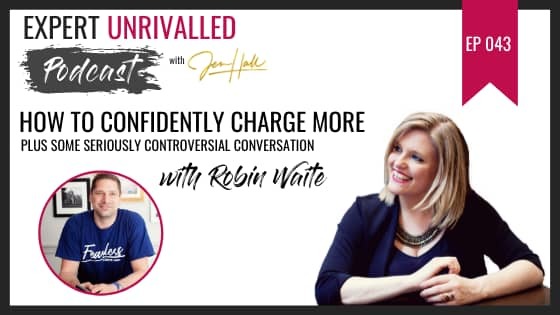If you’re looking for a listen with a shed ton of truthbombs then this episode is the one to listen to. Robin Waite – Fearless Business Coach & best selling author of Online Business Start Up & Take Your Shot, specialises in helping businesses to step up and charge more and in this episode not only does he drop a few swear bombs (#zerobleeps), he’s also saying it exactly how it is.
- Listen in to find out why he believes that 25% of business owners don’t deserve to be in business.
- Why giving away your expertise and undercharging is causing more damage than just putting a gigantic dent in your revenue.
- How to start confidently charging more and owning your worth.
Useful Links:-
Book a Call with Jen – bit.ly/claritycallpodcast
Download my free Ultimate Guide to Becoming a Market Leader – http://bit.ly/MARKETLEADERGUIDE
Send your emails to jen@jen-hall.com
Follow Robin Waite –
https://www.facebook.com/groups/ChargeMore
https://youtube.com/RobinMWaite
Get Your FREE Copy of Take Your Shot:
https://fearless.biz/tyspromo
[spp-transcript]

